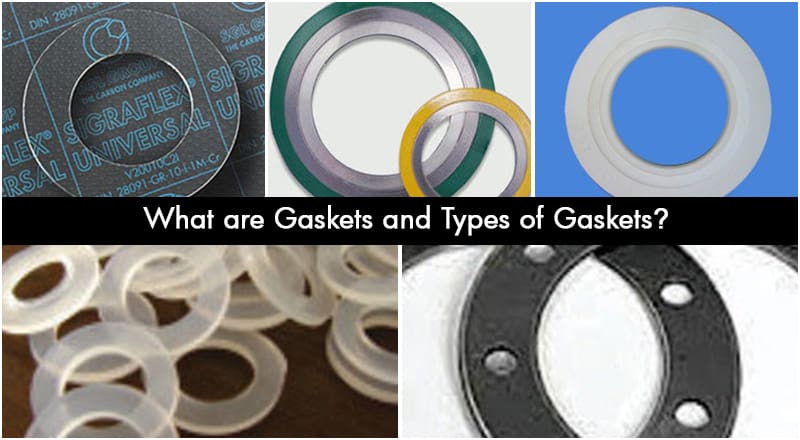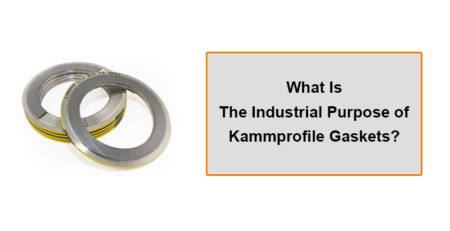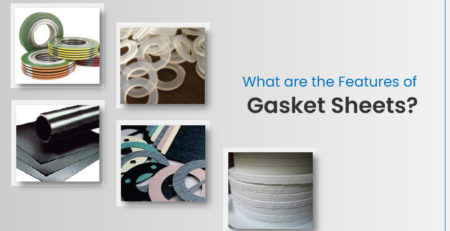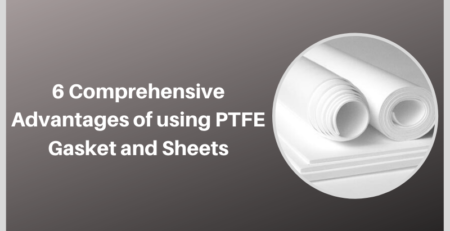What are Gaskets and Types of Gaskets?
Gaskets are used as a sealant to fill irregularities or gaps between two or more surfaces. Gasket manufacturers offer different types of gaskets such as PTFE envelope gasket, kammprofile gasket and so on. Due to the safety issues concerning usage of asbestos in gaskets, reputed manufacturers offer gaskets made using non-asbestos gasket sheets.
Being a major component for diverse industrial applications, gaskets have to be chosen carefully. If you are someone from the food processing industry looking for a gasket, then silicone gasket manufacturer who specialise in food grade silicone gaskets might be able to help you. But a different type of gasket would be needed in a petrochemical plant.
Gaskets are mostly chosen based on the properties such as chemical resistance, temperature resistance, pressure resistance, compression etc. Every standard gasket comes with its own set of properties. However, gasket properties can be enhanced with a combination of various materials.
Let’s take a look at the different types of gaskets based on the materials used for manufacturing them.
Types of Gaskets
- Non-metallic Gaskets
- Graphite Gasket : These types of gaskets are made using graphite material and work well in applications that require gaskets with good resistance to high pressure and temperature.
- Silicone Gasket : Silicone Gaskets are used for a variety of applications. Being a robust material, silicone provides optimum performance in extreme temperatures. Because of its resistance functionality, silicone is used for making FDA approved food grade silicone gaskets as well.
- Rubber Gasket “ These gaskets are made using elastomers such as natural rubber, neoprene, nitrile and EPDM. Rubber gaskets soft gaskets used mainly in heat exchanger, manways etc.
- Cork Gasket : Primarily used for applications involving oil, solvents, fuels etc., cork gaskets are preferred for their excellent flexibility and compression features.
- Compressed Non-Asbestos Fibre Gasket (CNAF) : CNAF Gaskets are made using aramid fibres and specialised filler materials. These can be used in applications that involve low surface pressure.
- Metal Gasket
Metal gaskets are popularly known as ring gaskets. These gaskets are made of metals such as carbon, steel and soft iron that provide good stability.
-
- Composite Gasket
For greater durability and specialised characteristics, composite gaskets are produced by gasket manufacturers. Composite gaskets can be multi-layer gaskets with multiple inserts made of metallic and/or non-metallic materials. Some of the composite gasket types are:
- Kammprofile Gasket : These are sturdy composite gaskets designed for extreme environments. Kammprofile gasket is widely used in petrochemicals and chemicals industries.
- Spiral Wound Gasket : These are made using a preformed metallic strip with filler such as Graphite or PTFE.
- PTFE envelope Gasket : It is a PTFE gasket with an inlay to strengthen the gasket. These gaskets are best suited for industrial applications that require good pressure resistance.
Gaskets can also be classified based on their function. The types of gaskets as per functionality would be mounting gasket, sealing gasket and anti-vibration gasket. Another way to understand the gasket type would be dividing the gaskets on the basis of their design such as sheet gasket, segmented gasket, spiral wound gasket etc.
To conclude, there can be several possibilities for producing the right gasket with the cutting edge technology available today.
Know more about gasket by exploring the possibilities for your requirement with a gasket expert. For requirement of standard or customised gaskets, contact a leading gasket manufacturer such as Sealmax by calling +91 8983059377










Leave a Reply